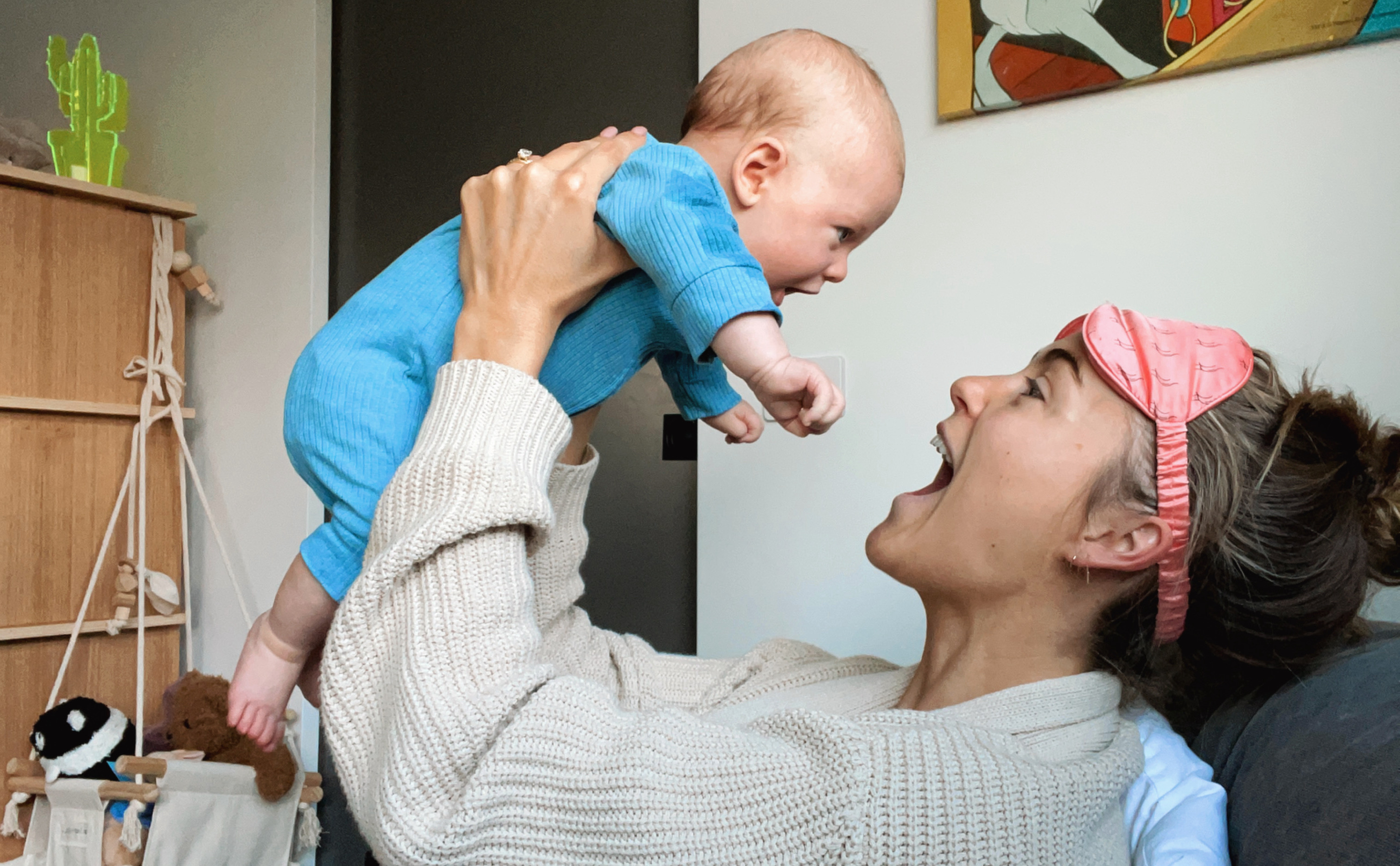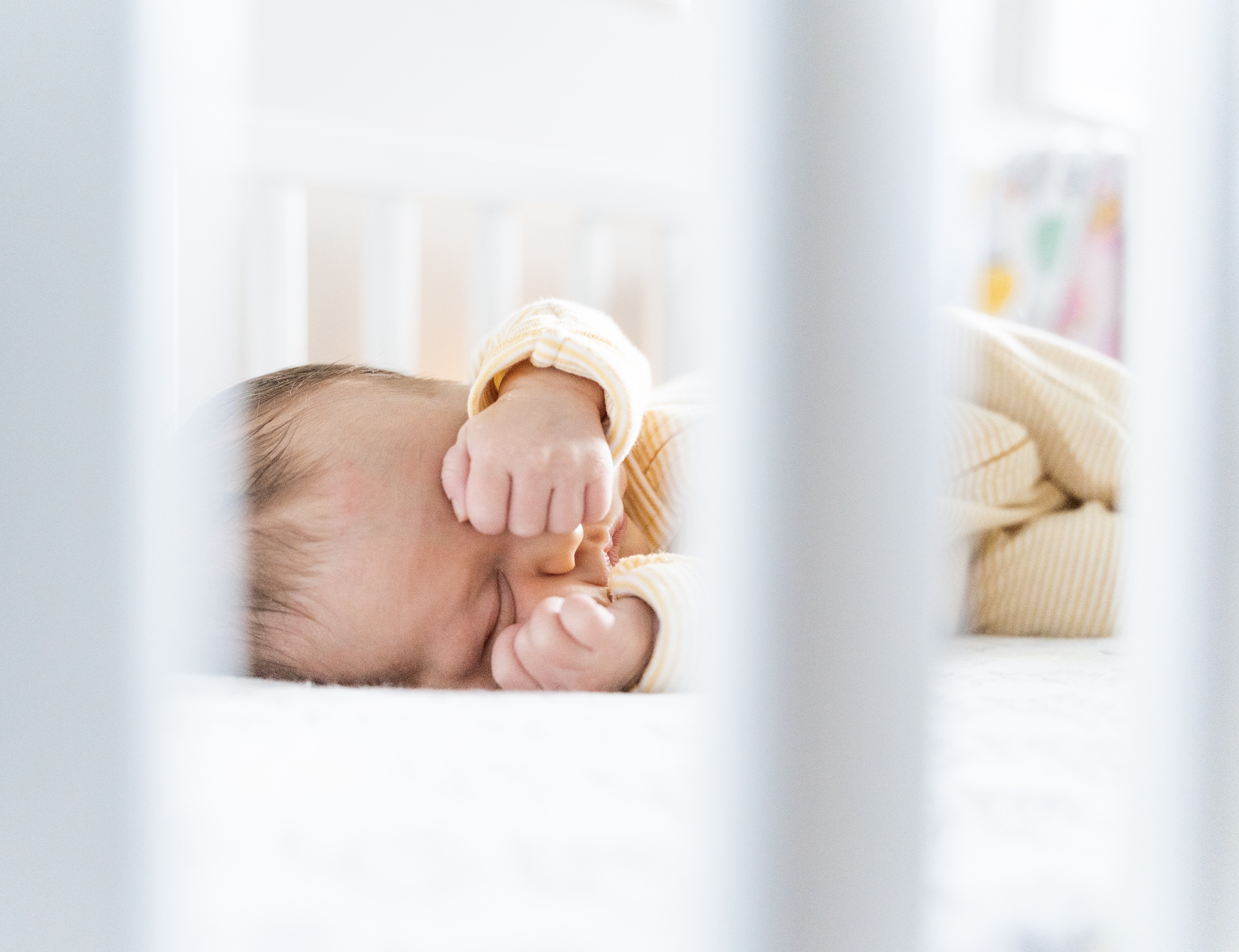A paediatrician’s tips for helping your baby adjust to daylight savings
For any parents worried about how daylight savings might affect their baby’s sleep routine, we’ve got your back!
To help you feel a little more prepared and aware of how your baby’s sleep might be impacted by the introduction of daylight savings, we’ve called in expert advice from Dr Golly, paediatrician and father of three who specialises in unsettled babies and poor sleep.
About daylight savings
Before we jump to Dr Golly’s advice, let’s first cover off the basics about daylight savings.
When does daylight savings start?
Daylight savings commences for many Australians on Sunday the 2nd of October.
What actually happens when daylight savings starts?
For those living in New South Wales, Victoria, South Australia, Tasmania and the ACT, when local standard time on the Sunday is about to reach 2.00am, the clocks are turned forward 1 hour to 3.00am and we begin going off local daylight time instead.
Losing an hour of sleep as a result of daylight savings can be cause some concern for parents about their baby or toddler’s sleep routine.
However, Dr Golly has shared his advice on how you can best help navigate the change and help your baby adjust to daylight savings.
Dr Golly’s general daylight savings tips
Dr Golly has shared 4 key things to remember when it comes to helping your baby adjust to daylights savings:
1. Black-out blinds
Dr Golly says that by ensuring that your child’s room is as dark as possible will help their body clock to adjust and stop the early morning sunlights from creeping in and disrupting their sleep. It will also help them to get to sleep at night as the darkness boosts their melatonin production while it’s still light outside.
2. White noise
Dr Golly recommends cracking that white noise to drown out any noises like birds waking for the day.
3. Routine routine routine
Dr Golly cannot stress this enough! Keeping routine consistent pre and post daylights savings is so important. Doing this will help keep your little one more settled around the changes caused by daylight savings.
4. Plenty of safe sunshine exposure during the day
Exposure to natural sunlight especially in the afternoon will help your child’s melatonin production.
Dr Golly’s methods for helping your baby adjust to the start of daylight savings
Alongside the above tips, Dr Golly has also shared 2 methods you use to help your baby transition to the new time.
1. Go with the flow
Dr Golly says that parents can totally choose to just go with the flow on the day of the change and adjust schedules accordingly. He says this works well for toddlers and young children as they tend to cope better with the change. However parents may need to pop them to bed a little early for a couple of days to help with the transition, and it’s very normal that their body clock will take a few days to adjust. The most important thing is to stay consistent with your routine.
2. Transition in the week before daylight savings
Another way Dr Golly recommends combatting the change is by slowly transitioning your little one in the week prior to the time change. He says this is particularly helpful for parents who have a younger baby as they are quite sensitive to changes in their routine. He wants parents to know that it can be normal for babies to have a couple of days where their routine might be a little bit off, but he can’t stress more about the importance of staying consistent. Staying consistent will help them adjust quickly to the change.
How do you slowly transition your baby when daylight savings is commencing?
-
- Based on a 7.00am wake up, on Monday and Tuesday wake your baby at 6.45am and move everything forward by 15mins, including meals and naps.
- On Wednesday/Thursday, move everything forward 30 mins, including meals and naps.
- On Friday move everything forward 45mins (wake at 6.15am).
- On Saturday move everything forward by 1hr (wake your baby 6am).
- Then on Sunday when the clocks have moved forward your baby will automatically be back to waking at 7.00am.
Finally, Dr Golly wants to remind you that it’s normal for there to be a period of adjustment and it may take your baby or toddler a few days to return to their usual wake up time and routine.
If you need more information and support on babies and their sleep, head to Dr Golly’s website here.
You might also like

- Blog
- KICBUMP
I’m so excited to FINALLY introduce you to something we’ve been cooking up behind the scenes: KICBUMP, our pre and postnatal Pilates program!

- Blog
- LIFESTYLE
Check out the chat we had with our wonderful co-founder Steph about how she is managing sleep and night time with Harvey, how she likes to unwind and her favourite sleep mediation. This chat might give you some tips on how to navigate your night time routine as new mum or even just bring you […]

- Blog
- KICBUMP
It’s completely normal to have so many questions as you transition through this brand new stage of your life! From ‘is exercising safe during pregnancy?’ to ‘when is it safe to start exercising after birth?’ Our amazing expert Physio, Ashleigh Mason answers the 10 most common questions she regularly gets asked about pregnancy and postnatal […]



